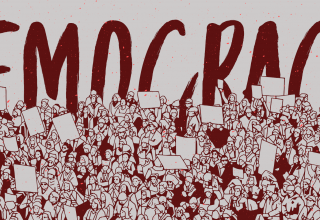Sitemize üye olarak beğendiğiniz içerikleri favorilerinize ekleyebilir, kendi ürettiğiniz ya da internet üzerinde beğendiğiniz içerikleri sitemizin ziyaretçilerine içerik gönder seçeneği ile sunabilirsiniz.
EPOSTA ADRESİNİZ
Zaten bir üyeliğiniz mevcut mu ? Giriş yapın
Lütfen geçerli bir mail adresi giriniz.
Lütfen üyelik ve gizlilik sözleşmesini onaylayın.
Sitemize üye olarak beğendiğiniz içerikleri favorilerinize ekleyebilir, kendi ürettiğiniz ya da internet üzerinde beğendiğiniz içerikleri sitemizin ziyaretçilerine içerik gönder seçeneği ile sunabilirsiniz.
Üyelerimize Özel Tüm Opsiyonlardan Kayıt Olarak Faydalanabilirsiniz

Sıradaki içerik:
TARIMDA KADINLARIN GÖRÜNMEYEN EMEĞİ
CLIMATE, CITIES AND GOVERNANCE
654 okunma
—
30 Kasım 2021 01:14

PhD Candidate – Istanbul University
This year the celebrations for World Urbanism Day (World Town Planning Day) followed the discussions and events heldduring the UN-Habitat’s Urban October 2021 and the Conference of the Parties of the UN Framework Convention on Climate Change (COP26).The world has beenlooking toits leadersto set an example and make tough decisionsfor the protection of the planet and humanity.
| “To address the climate change challenge, everything must change for nothing to remain the same. What we need is nothing less than a revolution in terms of ambition, commitment and delivery.”
Jürgen Rigterink (EUSEW, 2021) |
An opportunity not to be missed
Timing was on their side and it presented world leaders with a great opportunity to bring the urbanism and climate change agendas closer together, and go further to integrate one with the other. While the COP26 Climate Summit was seen as perhaps ‘the last chance’ to limit the global temperature increase to 1.5 °C by the end of this century, Urban October underlined the key role local governments and city planners need to play in the formation of more resilient and liveable cities and urban areas.
On 2nd November local leaders showed that they fully deserve their place at the table, with more than 1,000 cities committing to halving their emission by 2020 andbecoming carbon neutral by 2050.On the global stage, this news was taken as ‘cities seizing the green agenda’. Perhaps a more realistic interpretation is the affirmation that ‘cities are places where many global challenges can be addressed first, fast and most effectively’ (UCLG, 2021).
A complex array of issues
Even with these positive developments, the picture on the ground isa complex one. Over the years, the world hasseen that climate change is not a neat or steady process; it brings many shocks and irreversible consequences.Cities and local governments are at the forefront in the fight against these shocks with the growing infrastructure and resources challenges putting them under extreme pressure. Moreover, this pressure is disproportionately affecting geographies that host the poorest and most vulnerable people of the world.
In addition, there is need to develop clear policies and innovative solutions both at national and local levelsto turn climate commitments into reality.The integration of climate objectives to national and sub-regional strategies is the first step. Cities also need robustplansand a range of responses tobuild resilience and mitigatecontextual risks to avoid costly lock-ins. These plansshould tackle all urban systems, including but not limited to mobility, energy, and the natural and built environment. Consequently,a successful transition requires co-ordinated actions of multiple actors at different levels.
The implementation and financing challenges, especially at the local level, are very real too. Not only will differentnations and local areas transition to a net-zero society at different speeds with varying targets, but a huge amount of resources will also need tobe injected in greening the economy, while redirecting funding away from business-as-usual.The efforts to establish green financial systems, such as carbon tariffs, renewable energy subsidies and state investment in zero-carbon technologies, need further work to effectively support sustainable, climate-resilient development.
| “The impact of climate on cities was very well recognised. But when it came to the design and operationalisation of financing, recovery, economic stimulus responses, where cities and local governments are in those processes? Very weak.”
EdlamAbera (Urban Resilience Hub, 2021) |
Overall, meeting the 1.5°C target – and addressing the complex array of issues associated with it-requires a radical transformationover the next decade. The ‘shifting of mindsets’ across socio-economic, cultural, financial and institutional systems isfundamental in this makeover.The youthhas become the catalyst for powering this shift; they persistently pressure the world leaders to take critical action and the markets to go green.Furthermore, they demand this transformation to be equitable, just, and inclusive.
‘Good Governance’ for equitable and just transition
This very picture underlines the importance of looking at the urbanism and climate change agendas together. It demonstrates that building sustainable cities and urban areas must be placed at the centre of combatting climate change. It shows that achievingthe ambitious climate targets depends onthe spread of innovative practicesin urbanization,which in turn requires localcapacity, capability,and financing gaps to be urgentlyaddressed.It confirms that if a socially just transition is to be achieved, the integration of urban and climate change agendas cannot be separated from the need to address the global inequality challenge,because they risk reversing the years of development progress as poverty multipliers.
| “We must tackle climate change through better urban planning, management and address rising urban inequalities through more inclusive governance and more equitable investment”
MaimunahMohd Sharif (The Prince’s Foundation, 2021)
|
The inclusion of equality into the mix provides a renewed sense of public purpose to address the challenges brought by rapid urbanisation and the climatecrisis. It also underscores the fact that socially acceptable results can only be generated by strong multi-level cooperation that enables all segments and sectors of the society to participate in re-shaping the future and the allocation and use of resources.A more sustainable world for future generations only seems possible with this level of shared responsibility.
This recognitionplaces good governance and strong ethics at the centre of the implementation efforts with cities and local governments assuming an entrepreneurial and pro-egalitarian role in the transition to a net-zero society. Indeed, UN-Habitat (2020) states that “…inadequate governance reduces the quality of life for millions of people in a way that could be avoided”. Good governance provides city leaders with the opportunity to re-direct their economies and societies towards ambitious social goals and steer the required transformation to advance rather than undermine socio-ecological well-being.
As climate change has become the central policy challenge facing cities across the globe, there is a much greater imperative for cities to realise their potential as places of opportunity for the development of sustainable solutions. It is essential that they establish robust urban governance that brings all segments of society together in order to co-innovate for the common-good. Indeed, establishing and adopting innovative models for city and local governance and citizen engagementis key to buildinginclusivenessin and trust for the necessary actions.It engenders multi-stakeholder collaboration and co-creation of solutions with citizens, for citizens based on a shared understanding of site-specific societal challenges.
With good urban governance and planning processes, it is possible to innovate well and promote values-based local climate action, building resilience and generating sustainable, equitable and inclusive development. Cities and local governments must galvanize their efforts in multi-level and participatory governance if they really want to seize the green agenda.
Bibliography
Rigterink, Jürgen (2021, Oct 25). EUSEW 2021 Opening Speech. The European Bank for Reconstruction and
Development. https://twitter.com/EBRD/status/1452596935941103624
Walker, Peter (2021, Oct 31). COP26 ‘literally the last chance saloon’ to save the planet – Prince Charles. The
Lydall, Ross (2021, Nov 2). COP26: 1,000 cities seize agenda with carbon neutral vow. Evening Standard.
UCLG (2021, Oct 27). Urban October 2021 Event – Policy Council on Multilevel Governance. UCLG Meets.
https://twitter.com/uclg_org/status/1453365020562239491
Abera, Edlam (2021, Oct 29). ECA Official Global Policy Dialogue. Urban Resilience Hub.
https://twitter.com/UResilienceHub/status/1454089131529756682
Sharif, Maimunah M. (2021, Nov 2). The Special Meeting Ahead of COP26. The Prince’s Foundation.
https://twitter.com/PrincesFound/status/1455477662437318657
UN-Habitat (2020). Governance Assessment Framework: For metropolitan, territorial and regional management.
UN-Habitat Governance Series. Volume 1. https://unhabitat.org/sites/default/files/2020/10/gaf-mtr.pdf
Wickenberg, B, McCormic, K and Olsson, J.A. (2021). Advancing the implementation of nature-based solutions in
cities: A review of frameworks. Environmental Science and Policy. 125. pp. 44-53
Benzer İçerikler
- Site İçi Yorumlar
Hızlı Yorum Yap
TREND İÇERİKLER
2021’DE HER GEÇEN GÜN DAHA DA YOKSULLAŞTIK!
0
01/01/2022
KÜRESEL KRİZLERİN BİR BAŞKA YÜZÜ: KENTSEL YOKSULLUK
0
23/04/2021
DEMOKRASİLERİN İNTİHARI
0
19/08/2023
































Yorum Yaz